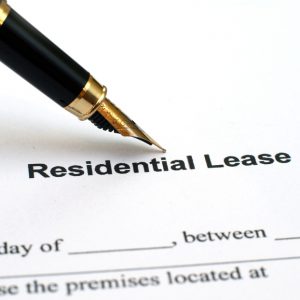If you own a larger building, like one with more than four units, it can be quite challenging to manage the place yourself. Or perhaps you would rather spend your time searching for new properties. After all, it’s hard to grow your business when you have to attend to noise complaints in the middle of the night, or to constantly fix leaking pipes and chase rent checks.
This is when you would bring on a property manager. These companies are pros – they have been doing this for years. Tenant issues you may be facing for the first time will be things they have handled time and again.
Why Are They Important?
A property manager can be the lifeline of your investment. Having a trusted property manager means you can pursue other aspects of your business without having to worry about the state of your existing properties.
Further, a competent property manager can pay their costs back in gold, given the revenue they can generate for your property.
In fact, there are at least four things that property managers provide that make them essential for maintaining your investments:
1. Keeping Units Filled
For one, a good property manager knows how to keep a tenant happy. Tenants leaving can be quite time consuming, and a vacancy can bleed cash, so it’s in your best interest to keep your units filled.
In the event of a vacancy, the property manager knows how to get it filled quickly. They have experience writing attractive ads, and generally know how to market the property. They are also professionals with showing the unit, fielding calls and closing deals.
2. Property Upkeep and General Site Maintenance
Ordering supplies, keeping the grounds attractive, answering maintenance calls, and maintaining a safe and secure lot are all within the authority of a well-trained property manager. Without one you could eventually face legal entanglements for negligence. The manager also has contractors they’ve worked with in the past, and you can count on them being not just reliable, but also licensed, bonded and insured.
They can also provide recommendations for renovations and other improvements that help increase your tenant retention rates.
3. Customer Service
Customer service can make such a huge difference in the quality of life for your tenants. Even if a problem can’t be fixed immediately, having staff that can communicate and respond quickly and professionally sets you above many other landlords. Remember, people don’t usually complain from structural issues – they mostly complain when they don’t get the customer service that they deserve. Conversely, positive customer service lends itself to positive online reviews, which helps attract prospective tenants.
4. Dispute Resolution
Whether the problem originates from a fight between tenants or a late rent payment, you can trust on the property managers to resolve disputes themselves. It’s easier for them to have a hardline approach with collecting payments and other issues because both parties—tenants and managers—know that the managers are just doing their job.
You can also count on them to record and file important information, just in case future litigation arises.
Like we said, some properties are not necessarily in need of a property manager. Others are in dire need of one being hired. If you are on the fence, get in touch with us and we can talk about whether or not it makes sense for you and your business.











